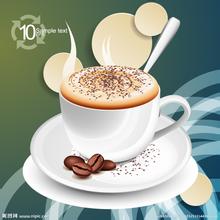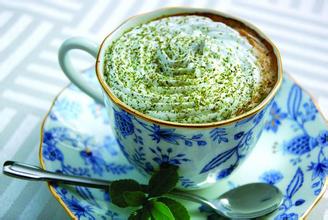Guatemala Inchter Estate Coffee with Good Sour Flavor Taste Introduction to Growing Environment
The current government of Guatemala was formed in January 2012. The main members are: vice President Rosanna Baldetti, Foreign Minister Harold Cavalieros, Minister of the Interior Maurizio Lopez Bonillia, Minister of Defense Ulisses Noe Soedo Hilone, Minister of Finance Pavel Centrino, Minister of Transport and Infrastructure Guillermo Castillo, Minister of Education Cynthia del Aguila, Agriculture, The Minister of Animal Husbandry and Food Mario Aldana, the Minister of economy and Trade Sergio de la Torre Jimeno, the Minister of Public Health and Social Welfare Ludwig Ovalle, the Minister of Labour and Social Security Carlos Contreras, the Minister of Energy and Mining Eric Estuardo Achira de Essa, the Minister of Culture and Sports Jeronimo Lanserio, Environment and Natural Resources Minister Luis Armando Zulita Tablada. [1]
Judicature
Guatemala consists of the Supreme Court, the Constitutional Court, the Procurator-General's Office, the National Public Prosecution Office and the Ministry of Internal Affairs. There shall be the Supreme Court, the Court of Appeal and the Primary Court. The Supreme Court has 13 justices for a term of five years, which shall be elected by Parliament and may be re-elected; the President of the Supreme Court shall also serve as Chairman of the National Judicial Council, elected by a majority of 2 judges by 3 votes for a term of one year and shall not be re-elected. The current President of the Supreme Court, Gabriel Antonio Medrano Valenzuela, was elected in October 2012. [15]
Political party
The Patriotic Party: the ruling party. Retired General Otto Peres founded the party on December 20, 2001 and served as the party's de facto leader. Originally a member of the ruling coalition of the Berhe government, he withdrew in June 2004 due to political differences. General Secretary Rosanna Baldetti. [16]
National Union of Hope: opposition. After the split of the New National Union in 2001, it was formed by former President Colom (formerly part of the National Revolutionary Union of Guatemala) as a centre-left political party. General Secretary Hailo Joaquin Flores.
National League: opposition parties. In 2003, it was composed of three small center-right parties, namely, the Reform Movement, the National Solidarity Party and the Mmur17 Movement, and won the general election of that year. During the period from January 2004 to January 2008, the allied parties broke away from the ruling alliance one after another. The coalition lost the general election in 2007. General Secretary Jaime Antonio Martinez Loisa. [17]
Republican Front of Guatemala: opposition party. Founded in 1990 by retired General Rios, he has a conservative mind and has a great influence in rural areas. He was in power from January 2000 to January 2004. General Secretary Luis Fernando Perez
Taste: bitter and fragrant, good taste.
The coffee produced in the highland is mellow and has a good sour taste, which is well received and is the best material for mixed coffee.
Guatemala's extremely hard beans are famous for their elegant, sour, clean, well-structured, as well as sour apples, berries, jasmine, orange peel, green pepper, sweet and sour fruit, sweet chocolate, and even smoky aftertaste.
Such a rich regional flavor should be related to the soil and water in the eight major producing areas of the dangerous country. Among them, the five producing areas of Antigua, Ekat Nango Valley, Attilan, St. Mark and Huaiqiang belong to volcanic geology. In addition, Vivetta Nanguo, Koban and New Oriental producing areas belong to the climate of non-volcanic highlands or tropical rain forests. Guatemala is home to more than 300 microclimates, which can be called the largest in the world. If a person's wrinkles depict a person's path, then the aroma of coffee remembers the origin of a cup of coffee: about its hometown, the age of harvest, the way it is baked and ground, that is, the lifetime journey of coffee. Guatemala's fertile volcanic soil gives birth to a unique flavor of boutique coffee beans: Antigua coffee. The charm of Antigua lies in its balanced and refreshing acidity, rich spice and unique smoky taste, as if to tell us about the desolate history of Antigua in Guatemala.
The aroma of coffee liberates all forms, hearts and national boundaries. Through coffee, the mood leaves the country at any time and lands in a strange country half a world away. Even at the end of the world, you can share a mood. Antigua was the capital of the Spanish colonial period in 1543. Although this emerald-like valley has been surrounded by active volcanoes in all directions, layered, deliberately waiting and full of dangers since ancient times, its vastness, vastness and fertility still tempted Spaniards to build a capital in the precarious cliff valley.
The volcano once destroyed the once-prosperous capital in an instant, robbing it of all its prosperity and beauty overnight. After this subversive mountain city, the splendor has disappeared for more than 200 years, and Antigua has never swaggered again. After being dull, Antigua is now run by the last remaining Indians. These hardworking Indians became later coffee producers. They not only discovered the rich and attractive unique smell of Antigua coffee, but also brought it to people all over the world. Today, Antigua coffee enjoys a reputation as the best quality coffee in the world and is praised by coffee connoisseurs as the best and most distinctive coffee in the world.

Important Notice :
前街咖啡 FrontStreet Coffee has moved to new addredd:
FrontStreet Coffee Address: 315,Donghua East Road,GuangZhou
Tel:020 38364473
- Prev

Fragrant, mellow and sweet coffee from La Tisa Manor, Guatemala, introduction to boutique coffee
Guatemala is located in the tropics, the northern and eastern coastal plains have a tropical rain forest climate, the southern mountains have a subtropical climate, the year is divided into two dry and wet seasons, with the wet season from May to October and the dry season from November to April of the following year. The narrow and fertile flatlands on the Pacific side of Guatemala have a tropical climate. The central plateau is also the cultural center of Guatemala, where the year-round temperature ranges from 1300 to 1800 meters.
- Next

Introduction to Renas Manor in El Salvador Coffee Manor Flavor planting Environment
El Salvador was originally inhabited by the Mayan Indians. The scenery of the Republic of El Salvador became a Spanish colony in 1524. Independence was declared on September 15, 1821 and later became part of the Mexican Empire. In 1823 the empire collapsed and El Salvador joined the Union of Central America. The Republic was proclaimed on February 18, 1841 after the disintegration of the Union in 1838.
Related
- Does Rose Summer choose Blue, Green or Red? Detailed explanation of Rose Summer Coffee plots and Classification in Panamanian Jade Manor
- What is the difference between the origin, producing area, processing plant, cooperative and manor of coffee beans?
- How fine does the espresso powder fit? how to grind the espresso?
- Sca coffee roasting degree color card coffee roasting degree 8 roasting color values what do you mean?
- The practice of lattes: how to make lattes at home
- Introduction to Indonesian Fine Coffee beans-- Java Coffee producing area of Indonesian Arabica Coffee
- How much will the flavor of light and medium roasted rose summer be expressed? What baking level is rose summer suitable for?
- Introduction to the characteristics of washing, sun-drying or wet-planing coffee commonly used in Mantenin, Indonesia
- Price characteristics of Arabica Coffee Bean Starbucks introduction to Manning Coffee Bean Taste producing area Variety Manor
- What is the authentic Yega flavor? What are the flavor characteristics of the really excellent Yejasuffi coffee beans?

